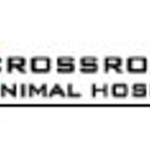
Crossroads Animal Hospital LTD
OPEN NOW
Today: 8:00 am - 5:00 pm
39 Years
in Business
9 Years with
Yellow Pages
 auto services
auto services beauty
beauty home services
home services insurance
insurance legal services
legal services medical services
medical services pet services
pet services restaurants
restaurants
Crossroads Animal Hospital - Burnsville
Good place used to work here many years ago
Phone: (612) 567-4479
Address: 14321 Nicollet Court, Burnsville, MN 55306